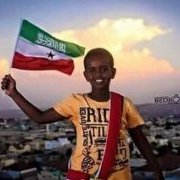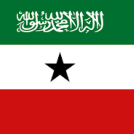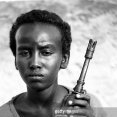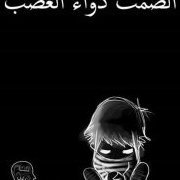Leaderboard
Popular Content
Showing content with the highest reputation since 07/15/2019 in Posts
-
4 pointsNiyaw horta comments kaagu kaama khasaarin aragti saxaad cabirtay oo aad qortay. Laakiin imika waanba sakhraansanay oo kuuma jawaabi karo indrkay talaabo wax waydiiya. Anigu geeridii nebiga ma ogiye
-
4 pointsOn the positive side this shows Somaliland is starting to realize ictiraaf isn't possible and taking more active role in the politics of Somalia.
-
4 points
-
4 pointsDP World completes 400 meter expansion of Somaliland’s Berbera port. 59Shares Friday August 14, 2020 DP World this week announced the completion of a 400-meter expansion of the Berbera port in Somaliland. The Dubai Port Company that is contracted to expand the port said once operational, it will increase the terminal’s capacity by 500,000 TEUs per year and further strengthen Berbera as a major regional trade hub servicing the Horn of Africa. In a tweet, DP World stated: “We have just completed a 400m quay and a new extension at Berbera Port, Somaliland. Once operational, it will increase the terminal’s capacity by 500,000 TEUs per year and will further strengthen Berbera as a major regional trade hub servicing the Horn of Africa.” The news has elicited excitement within the Somaliland government with the vice president Abdirahman Abdilahi saying: “As Deputy President of Somaliland and on behalf of the people, words can’t express my great excitement about the nearing completion of the Berbera port expansion. my gratitude goes to the Sheikhs of the UAE and the DP World.” DP world, the Dubai based world’s largest port operator is the key player in the rebuilding of Berbera, they have invested $442 million for the expansion of the port and are also the economic free zone. It has projected to complete work by February next year. advertisements In 2017 when the original agreement was signed, the CEO of DP World Mr. Sultan Ahmed bin Sulayem drew a parallel between the growth of Dubai and the development path Somaliland is on and added “Our vision is to make Berbera a trading and transportation hub for the Horn of Africa.” Berbera port is among the few corridors in the Horn of African region, which serves for both military and commercial purposes. The Berbera Port was built in 1964 by the Soviet Union and further expanded by the United States of America (USA) in 1982. It has served for both the Soviet Union and the U.S military within a span of 20 years. Once completed, facilities and service will surpass those in the neighbouring Djibouti according to the contractors. According to the DP World, the port will be able to handle the biggest ships compared to the other ports in the region and will complement activities at the Port of Djibouti and the Lamu Port which is also under expansion in the coast of Kenya. The Berbera Port expansion is the largest investment in Somaliland since it parted ways with Somalia in 1991. Work on the port expansion has reduced due to the measures put in place in the fight against the spread of the deadly coronavirus but the Somaliland government and the DP World have projected all facilities will be ready for operation early 2021. “We are very much on course. Of course the coronavirus has affected the speed at which we were on, but we will soldier on and deliver the most modern port facility in Berbera,” an official of the DP World said. The Berbera port expansion, designed to equip the Somaliland port for major vessels and transform it into one of Africa’s pre-eminent facilities. Expansion of the port started early last year with the first phase at a cost $101 million. Federico Banos-Linder, Vice President External Relations, DP World, said once the port is done, Somaliland will be one of the biggest and most modern players in the maritime industry in the Horn of Africa. “Already with phase one of the three phases done, we have increased the container capacity by 50 per cent and pushed volumes by 70 per cent which is a massive improvement. “We are now exporting 4 million livestock from 1.5 million just less than a year ago,” said Banos-Linder. Total investment of the two phases will reach $442m. The port’s current capacity is around 150,000 twenty-foot equivalent units [a measure of ships container carrying capacity] and is set to expand to 450,000 TEUs once development is complete. DP World firm will also create an economic free zone in the surrounding area, targeting a range of companies in sectors from logistics to manufacturing, and a $100m road-based economic corridor connecting Berbera with Wajaale in Ethiopia “Our aim is to make this an important regional hub for the maritime industry in the Horn of Africa,” DP World chairman and Chief Executive Officer Sultan bin Sulayem said. “We are within schedule in our work,” he added. DP World holds a 51 per cent stake in the Berbera port, while Ethiopia holds 19 per cent and Somaliland the rest
-
4 pointsThe recently upgraded Hagreisa land database registry is actually part of a larger project by Somaliland Gov't and SolidBlock Inc. The project will be using state of art block-chain based database to register land titles and other key assets.
-
4 pointsOodweyne They can't keep up. Befuddled, bemused and bewildered by Somaliland’s growing gravitas at international diplomacy. While they play tiddlywinks with Mudulood this and Dhuusomareeb 2.4 that. At least they're a curious bunch.
-
4 pointsThis is great improvement.The land database in Somaliland has been a consistent headache and cause for a lot of troubles including missing files, disputes etc. The introduction of GIS system will greatly simplify while at the same time is more secure and more reliable.
-
4 points
-
4 pointsAnd when they are training our navy and Air force it will be reported as a "Latin American" and an "Eastern European" country respectively
-
3 points
-
3 pointsI don't understand why anyone needs to blame her for a mere speech. The United States along with pretty much everyone on this planet already made it clear to the Xabashis that Ethiopia has no right to buy cheap land and sea from the despot in Hargeisa.
-
3 pointsWar yaa Facebook algorithm yaa iga ceshto. Waxaan camal isoo hor dhigaa, aniga 'not interested/block' ku haayaa maba joojinaayo.
-
3 pointsThe ‘ictiraaf’ thing has really confused some, Ethiopia already enters agreements with Somaliland, has a diplomatic mission that reports directly to Addis, has direct flights to Hargeisa. What more ictiraaf than that will Ethiopia bring you, changing the sign board of its Consular Mission to Embassy is that worth selling your land for it.
-
3 pointsIt was clear from the beginning, that the Oromo narrative was pushed by Ethiopia as the precursor for voluntary and indirect annexation. Ethiopia has for decades used a politics of Oromisation in Somali region solidify its government grip on Somali’s and expand its territorial hold, so this wasn’t anything new, what is new however is this politics being applied or expanded to inside sovereign Somali territory.
-
3 pointsCarfaat Layskuma hayo in afrikaan iyo amxaaro maamulaan koonfurta, xoogna ku joogaan markaan dhexdeenii is dilnay oo daciifnay. Gaalo kale oo walaalahood ah yaa koofiyad cagaaran u xidhay nimankaasu waa sharciyaysan yihiin. Meesha kaliya oo aan islahaa waa lagu faani karaa waxay ahayd waqooyiga oo aan askari ajnabi ah joogin marnabana aan lagu arag. Laakiin snm waxay noqotay ninkii boqolka soomay oo bakhtiga ku afuray Baqdinta aan iminka qabaa waxay tahay in la arkay meesha aad ka jilicsan tahay oo ah "tol" la'aanta. Taasina waxay keenaysaa in amxaar kuul leh lagula walaaleeyo, dadkaagii soomaaliyeedna cadaw kuu noqdaan. Ugu dambayn Adeer hashaasu waa jabtay, waliba si sahlan geelu haduu jabo ma kabmo waa la qashaa, Hashaas jabtay cuna oo karsada intuu amxaar ceeriin ku cuni lahaa. Afeef Hadaad luuqadayda garan waydo raali ahaw, jiilkii hore yaan kasoo jeedaa. Ogowna aduunka waxaan ugu necbahay caadifadda ka sakow, inaan arko soomaali, soomaali kale maydkiisa kor taagan xataa haduu shbaab yahay.
-
3 pointsXamar iyo shirqoolkeeda ha iska ilaaliyo. Meesha bahalo ka buuxo.
-
3 points"We are Somalis, we will remain as Somalis, the most painful thing we felt was that you will not govern yourself, but we will govern you. We have denied that, the decision and advice of what happened in LasAnod, SSC Khaatumo is for the Somalis. We do not want to revenge them, the victory we achieved is a victory for the Somalis." Leader of SSC-Khatumo Abdiqadir Ahmed Aw Ali. (Today’s speech at Laascaanood September 14, 2023). "Anagu Soomaali baanu nahay, Soomaali baan ahaan doonaa, waxa ugu xanuunka badan ee aan dareenay wuxuu ahaa - Tashan mayside anaa kuu talin doona! Taas anagaa beeniney, go'aanka iyo talada wixii ka dhacay Laascaanood Waxay u taalla Soomaali. Ma doonayno in aanu aarsano, guushii aanu gaadhney waa guul Soomaaliyeed.” Hogaamiyaha SSC-Khaatumo Cabdiqaadir Ahmed Aw Ali. (Maanta khudbadii, Laascaanood, September 14, 2023."
-
3 pointsConcur, I really hope this will be the end of warmongering and cool headed and rational thinking returns to our people, but fear it won’t be the case yet.
-
3 pointsThese whole moves by Xasan Socdaal regime just proves how terrified they are about Reer Baraha Bulshada. Xasan, Xamsa and Alqabyaala openly are complaining about their corruptions being exposed on social media and declared amateur war on them. They first tried to buy them, starting with tolka Qaraxquute and C/llaahi Balwaan. Balwaan refused, however Qaraxquute is on per diem. Shiine Culey was paid by Xamsa as is Amiin Caamir by wasaaradda warfaafinta. They briefly shut down Cali Yare's Facebook accounts twice, declaring him dead, so was Abwaanad Naciimo Qorane. They tried to shut down Sh. Cabdi Xirsi's social media accounts by sending legal threatening letters to Meta and Youtube. Macalinka Luggeeya kama fakan, trying to hack while he is on live. C/risaaq Teera iyo Naciimo Qorane baasaboorada ayee ka kansaleen. Kabtan Ayuub weyba ka samreen. Moooryaan aanan xishood iyo sharci midna kaa qabaneynin dalka xoog inay ku heystaan rabo. They are really mad at Ilhaan Garaad because her superviral video about gabadhii ordeysay exposed their full incompetency.
-
3 points
-
3 pointsThis competition and the similarly cringe worthy ones before it epitomises the Somali people as a whole. It is a perfect picture of our collective failure. This world and everything in it is defined by competition. It's fabric is made of the carcasses of the loosers and the trophies of the winners. From the constant struggles between the prey and the predator in the animal kingdom (survival of the fittest) to the competition for resources between individual humans and their families, everything is based on competition. Nations which are just a collection of families, are also in competition. And in this group competition of families, we became a joke just like our tortoise sister in this embarrassing clip.
-
3 pointsSanaag and Maakhir people are the winners. They fully boycotted the Somaliland election two years ago with almost zero members, and today they 100% participated the Puntland election. No one can dispute where they belong. There is nothing more democratic than the people deciding their future by vote without fear. Of the original five districts of Sanaag, only Ceel Af Weyn did not vote.
-
3 points
-
3 pointsAt least 100 killed in border clashes between Ethiopia’s Somali and Afar regions – official Border clashes between Ethiopia’s Afar and Somali regions have killed at least 100 people, a regional official said on Tuesday, the latest outbreak of violence ahead of national elections in June. Around 100 civilians were killed since clashes broke out on Friday and continued through Tuesday, Ahmed Humed, deputy police commissioner for the Afar region, told Reuters by phone. He blamed the violence on an attack by Somali regional forces. Ali Bedel, a spokesman for the Somali region, said 25 people had been killed on Friday and an “unknown number of civilians” died in a subsequent attack by the same forces on Tuesday. Both sides deny having initiated the attacks and blame the other for the violence. Reuters could not verify whether the 25 deaths claimed by the Somali official were in addition to the 100 deaths or included in that figure. Clashes along the border predate the six-month-old conflict in the north that has pitted the federal government against the former ruling party of the Tigray region. Yet the violence has intensified just as Prime Minister Abiy Ahmed’s government is trying to assert control over Tigray - underscoring how the 2019 Nobel Peace Prize winner is struggling to keep the country together. The election is regarded as a litmus test for the country’s fragile unity, challenged by many newly resurgent regional and ethnically based parties. “The Somali region special forces ... attacked the areas of Haruk and Gewane using heavy weapons including machinegun and rocket-propelled grenades. Children and women were killed while they were sleeping,” Ahmed said. In 2014 the boundary between the two states was redrawn by the federal government, then headed by a multi-ethnic ruling coalition, the Ethiopian People’s Revolutionary Democratic Front (EPRDF). Three small towns were transferred to Afar from Somali, which has since tried to win them back. As a result militias from the two eastern states have clashed before over their disputed boundaries. In October last year 27 people were killed in a wave of clashes over the border, with each side blaming the other. Reuters
-
3 pointsThat is true Xaaji. The rights of the job seekers from SL should be respected. Let's not forget their rights are enshrined in the constitution called 4.5.
-
3 points
-
3 pointsDawning of a new era. Incredible how work continues unabated at the original port at full capacity during the expansion.
-
3 points
-
3 pointsProf Faratoon is in Ankara, Turkey. He will be holding talks with officials from Turkey's Foreign Affairs. Somaliland: FM Arrives in Turkey | Somaliland Standard SOMALILANDSTANDARD.COM The Foreign Minister of the Republic of Somaliland arrived in Turkey for talks with his Turkish officials at the ministry of foreign affairs. Somaliland’s Foreign Minister, Yasin Haji …
-
3 points
-
3 pointsA Somaliland delegation led by foreign minister Mr. Faratoon, had proposed a union with Republic of China (Taiwan). For the Taiwanese , since they do not share a border with Somaliland , it was a welcome joke, but the minister insisted that sharing borders with another country is not a requirement for this union to happen. He suddenly put on the table a document signed by his president and told the audience to be serious and hear him out. The Taiwanese hosts were shocked how serious the minister was and decided to give him the floor. Minister Faratoon acknowledged the seriousness of the issue and said he have to stand up to deliver the sales pitch of the century. As he begun his sermon and the merits of this union, Dr. Edna who was sitting beside him sensed that Mr. Faratoon was some what hesitating in his delivery, and jumped to eloquently set the stage. As she sat down, another member of the delegation Ahmed Yasin, jumped to the fray and said, " as the speaker of Somaliland parliament" ( he is not the speaker but the deputy , but what do the Chinese juniors know) and said we got your General Assembly seat in silver plate. The delegation explained the steps to be taken to achieve a seat at the UN for the united countries of SomTaiwa. Here are the steps: Somaliland: First, Taiwan have to spend money for Somaliland recognition in Africa. Since everyone is saying Africans should be first decide if Somaliland is to be recognized, we will buy African votes within the African Union. THere are already enough candidates willing to recognize us if the price is right. South Sudan, Guinea, Gambia, Chad, Kenya are among those who could give as the first votes. Taiwan: How much money does it take to buy these votes? Somaliland: Few hundred million dollars.. Taiwan: that is a bargain. less than a billions for a UN seat, that would be the best deal ever. We are willing to spend 5% of our sovereign wealth which is billions to achieve a UN seat. Having said that how could that translate a victory for Tiawan? Somaliland: If you are willing to pay, we could get two dozen Africans, and then repeat the same plot in Latin America places like Guatemala, El Salvador, Peru and son. Within few years we could get 50 countries who would recognize Somaliland. Taiwan: of course., but you did not answer my question. How could that benefit us? Somaliland: WE will become one united country before we start the journey. When we get the recognition you will get too. A vote of recognition for Somaliland will be a UN seat for Tiawan. Taiwan: What should we call that country? Somaliland: didn't we said earlier? It will be called SomTaiwa. Taiwan: We like the idea but we want our name Taiwan to be before yours. Like TaiwaSom. It is only fair since we are bankrolling the whole campaign. Somaliland: give us a minute, we have to discuss about this new development of the name, because we assumed SomTaiwa was the name we agreed upon. Well, now the debate had started among the delegation. Minister Faratoon and another one from west Burco insisted that we are not willing to lose the Somali word in this name change. Dr. Edna and Ahmed Yasin who are close to Biixi disagreed. They said, " We do not mind losing this Somali thing, because some us had even had thought many years ago that instead of calling us the colonial name Somaliland , we should have called ourselves Maandeeq or even Shankaroonland. Saleebaan Gaal who did not say a word in all this debate , stood up and said, I can not allow Somaliland to be swallowed by these small eyed people, let us go home and debate this back home in Somaliland. Dr. Edna jumped and said, " how do you intend to debate this in a public forum? Saleebaan Gaal: we will tell the people the usual lie and explain that Taiwan is willing to make economic integration and future free trade with us. The delegation went back to the room and told the Taiwanese, " we will be back" and left. Folks, the debate continues.
-
3 pointsAbsolutely. He is a no frills man but doing a lot of work behind the scenes. Maalin ba dal ayaynu baraynaa qadaadweynta.
-
3 pointskkk Cheeseman bilo ayaa u hadhay, maxay kale ayaad ka filanaysay?
-
3 pointsI love it when Somaliland is making the rest of us look like either we do not know the seriousness of the situation or we have no clue what to do where to start. We can't even brag about herd immunity since we are cowards. May Allah (swt) help the poor nomad. As for Somaliland, thank you for making the Somali part of the world.
-
3 pointsKhayre has failed. Even a child knows that this Sufi outlaw was hungry for power. He knew his rule was over if elections took place in Galmudug. Farmaajo is also pushing a well known " Budhcad Badeed" named Qoor Qoor as the future leader. The best option is for Khayre and company to swallow their pride, accept defeat and keep Xaaf to rule until a real reconciliation takes place in Galmudug. If he keep insisting on his failed policy, Khayre will create three presidents within the three main sub clans of GAlmudug. Nin Saaxiibkay ah ayaa yidhi isagoo kaftamaya, " Reer Dayniile ayaa maamul HG u Samaynaya waxay ahayd riyo beena".
-
3 pointsAdiga wax makusoo gaadheen mise tacabkaagii wuu khasaaray
-
3 pointsIn all seriousness, the tragedy of Somalis is our small-mindedness. Men like Axmed Gurey, Sayidka, Sheikh Barsane and Nasiib Buundo fought in the name of Islam or in the name of their Somalis and fought against common. And history shows and no one Maryooley can deny, the armies they commanded hail from all Somalis. We can question their methods but their goals were clear. Their history is Somali history!
-
Newsletter





.thumb.jpeg.79edf7e652eaa56ebe85e2c649f6cd14.jpeg)






